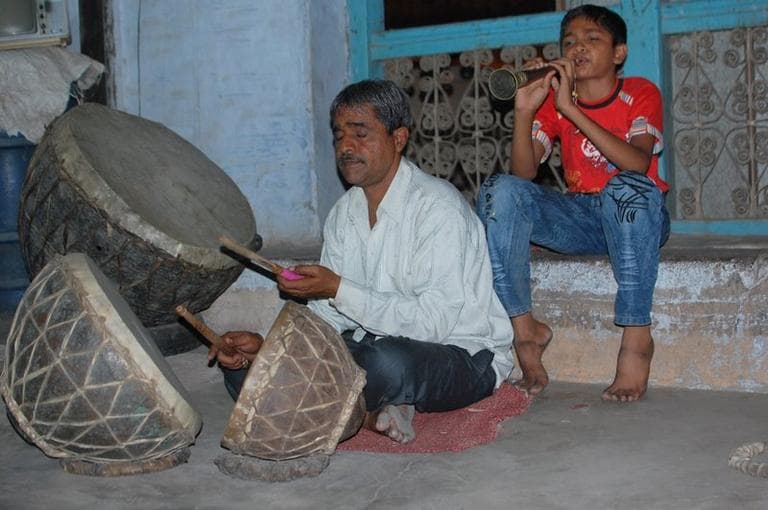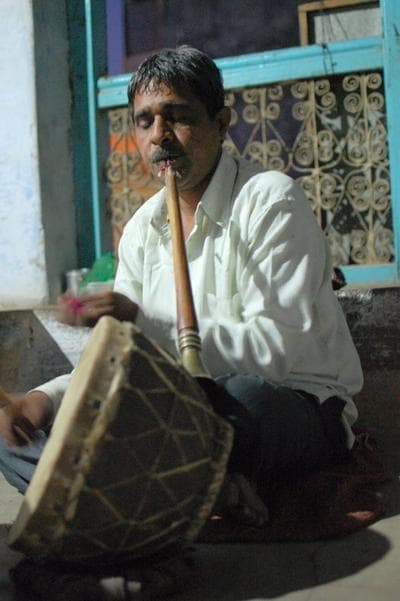Advertisement
Indian Musicians Pass On Traditional Drumming

In the city of Ahmedabad, India, the Mayuddin family has been playing traditional music at one historic gate in the city for six generations. The music echoes out each day, and has become a fixture for the people who live in the heavily Muslim Manek Chowk area.
Originally the music signaled the opening and closing of a series of gates around the city. The tradition passed to the Mayuddin family more than a century ago. Since then, musician Sheru Mayuddin said they've played on, even through the violence that shook Ahmedabad in 2002.
That's when dozens of Hindus died in a train fire in Gujarat, that Hindu groups blame on Muslims. The event sparked riots that killed more than a thousand people- mostly Muslims- and left the city of Ahmedabad under curfew.
"I didn’t like that time but we wouldn’t stop for anything" said Sheru Mayuddin.
Today the music is part of a routine. It rings out at sunset, and sunrise- when women like Nasimbanu Pathan listen as they begin their daily chores.
“Normally ladies are doing their routine household work. But when we hear them play, we stop for five minutes and we listen.”

Pathan runs a tea stall beneath the balcony where the musicians play. “I listen to them everyday because my house is right next to where they play," she said. "I have heard them since I was a
little girl.”
81 year-old Sayed Bhadruden has also lived in the area his entire life. He says he appreciates the music's regularity. "You hear them and you know the time," said Bhadruden. "If you listen to it you’ll feel good."
Sheru Mayuddin said his family plays to honor the memory of
Ahmedabad's king. But they also do it for the money. They get paid
about $25 a month, out of a private trust that maintains the king's
tomb.
“I would keep playing, even if there wasn’t any money," said Sheru
Mayuddin. "I don’t get tired, I don’t get bored because I play from
the heart.”
But Sheru's brother, Amir Mayuddin, was less enthusiastic. He sits
off to the side, unable to play because his left arm is in a sling,
after an accident.
“I enjoy it also," Amir Mayuddin said. "But I also know that we have to do it."

And as with any tradition, it's survival depends on the next
generation. A group of teenage boys sit to one side of 14-year old
Afsul Mayuddin, who plays the drums most days. Afsul Mayuddin insists
he likes traditional music, but it doesn't come up when he lists his
favorits.
“I like songs in movies- Bollywood songs," he said, "of Salman Kahn
and Sharhrukh Kahn.”
But a bigger threat to this family's tradition, may be Afsul's
personal ambitions. "I've thought about studying," he said, "college
and all that.”
And right now, he's the only young person in his immediate family
who's learning to play.
“I have an older brother" Afsul Mayuddin said. "He goes for jobs
elsewhere. He goes so far that he doesn't have time to learn how to
play."
And will that lure-of a distant job or college- end this family's
6-generation long tradition? Afsul Mayuddin's uncle Amir Mayuddin said
they can't speak for the next generation.
“Till we are dead we’ll keep playing," said Amir Mayuddin. "But after
that I don't know."
This program aired on May 11, 2010. The audio for this program is not available.
